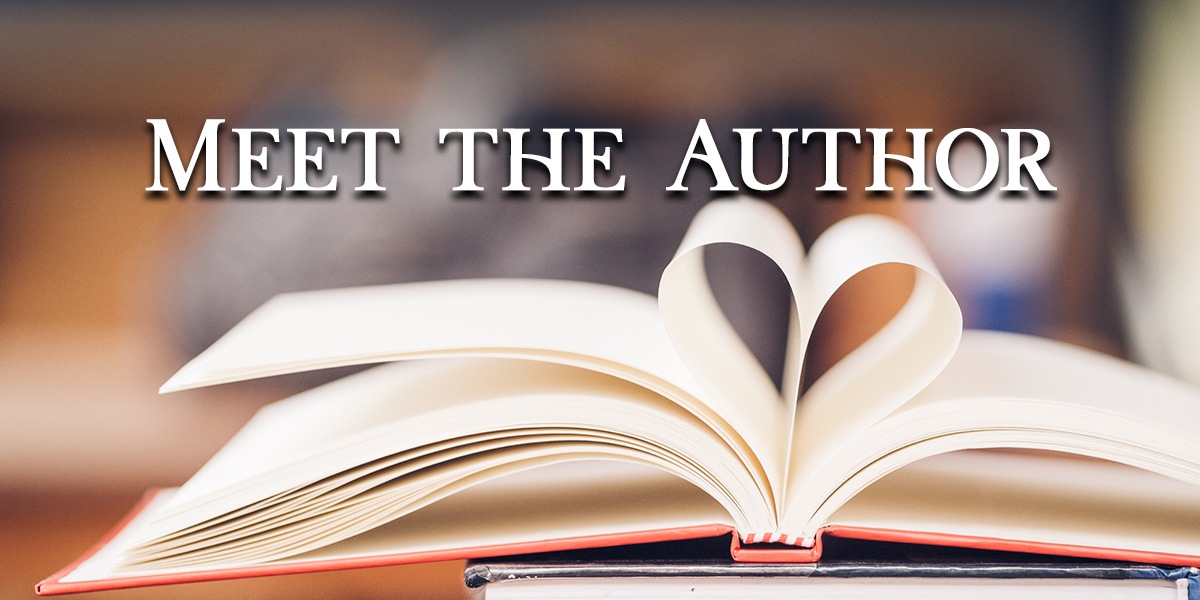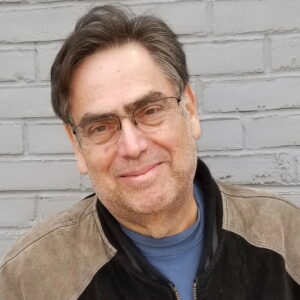
LMBPN Publishing welcomed another collaborative team to our family this year. Their first urban fantasy book, Soul Bottles, released this past week.
Lawrence M. Schoen is an established author, having written both for traditional publishing houses and as an independent author. He and his co-author, Brian Thorne, are currently publishing two series with us this year.
Lawrence has always loved writing. It was an escape from boredom for him. He started at age five when his father took him every Saturday and Sunday to the swap meet. It continued for the next 18 years until he went off to college. When business was slow at the swap meet, he filled spiralbound notebooks with random stories, buying a new notebook each weekend.
He is known for two very different directions in his writing career. The Barsk universe is his attempt at writing “literary science fiction.” It grapples with heavy concepts like free will and predestination, the hero’s journey as a way of living, racism on a galactic scale, and talking to the dead. It also has elephants.
On the other end, there are the stories and novels of the Amazing Conroy which are a light, whimsical Space Opera about a stage hypnotist and his alien companion animal that can eat anything and farts oxygen.
Lawrence has been a finalist for the Astounding award for Best New Author, the Hugo Award, and six times for the Nebula award. He has won the Cóyotl award for Best Novel twice.
If you get to know Lawrence and are friends with him, he will wish you Happy Birthday in Klingon and is an absolute delight to chat with.
We hope you enjoy getting to know him in this interview!
 Are you a full-time author? If so, what did you do before you became a full-time author? If not, what do you do for a living in addition to writing?
Are you a full-time author? If so, what did you do before you became a full-time author? If not, what do you do for a living in addition to writing?
Nowadays I’m lucky enough to write full time. But in the “before times,” I spent ten years as a college professor (the Ph.D. after my name isn’t just for show!) and seventeen years as the director of research for a small medical center.
Are you a pantser, plotter, or plantser? Have you changed over time or have you always been that? And how does it work for you?
I started out as a pantser. Then, in 2010, I climbed the mountain (literally) and attended Walter Jon Williams master class, the Taos Toolbox. That experience taught me, among other things, how to “break” a book so that you could see what happened in every scene and how each scene related to every and served the book. That turned me into a plotter. In the last couple of years, I’ve discovered the joy of writing while walking using dictation software, which is sometimes total pantsing and sometimes a blend (e.g., I’ll have an outline, steal a peek at what’s supposed to happen in the chapter I want to work, and then go off and walk and talk).
What does an average day look like for you?
I get up, tend to my ablutions, feed the dog, and then drive off to a local McDonald’s for some breakfast and maybe 30 minutes of pleasure reading. Then, after refilling my Diet Coke™, I’ll open up the laptop and get to work. Usually, there’s some email to respond to or other author-but-not-actual-fiction-writing chores, but eventually, I’ll work on one of the various books in progress, adding new words or editing previous ones. After a few hours of this, if I’m lagging — and alas, due to health issues, lagging comes earlier than I’d like — I’ll head home, do some chores, and possibly take a nap (see those aforementioned issues). The evening may include more work, dinner, and some television with my wife, or getting caught up with social media and other online obligations. As of this writing, I have a 1,741-day streak on Duolingo!
Every author has their own unique method when it comes to writing. What is your routine when you sit down to write?
There’s a mindset to it. Sometimes I have to sneak up on it (which is why I’ll ease into it with email), but often enough I’ve been thinking about what I want to work on that day and it starts to flow as soon as my fingers hit the keys. Sometimes, I just don’t feel like it, and I roll my eyes at myself for being such a prima donna.
What in your life helped to create your stylized vision for your character/world and how have things in your current life helped to further that stylized world/character?
Back in my professor days, I’d have students come into my office and whine about not wanting to take this class or that course. Invariably they’d say something like “I’ll never use it.” This of course is not true. Everything is used. Everything is connected to everything else, the question is can you see the connections? And as a writer, everything is grist for the mill.
Clearly, a big influence on my writing has been my training and career as a research psychologist. That’s a process that changes not just how you think but how you perceive the world. I’d be stunned if it didn’t show up in everything I write.
 What would you say is the hardest part of the writing process for you, and how do you yourself, overcome it when creating a novel?
What would you say is the hardest part of the writing process for you, and how do you yourself, overcome it when creating a novel?
Figuring out where to start the story and also what to leave out. I’m better at it now, but it’s something I still grapple with. I want to get in all the cool backstory, the secret origin, and the events that contribute to making the protagonist who they are. But there’s a lot to be said for starting your story in media res, shoot the sheriff and have the protagonist standing over the body, smoking gun in hand, saying “wait, it’s not what it looks like.”
Why do you write?
I’m not one of those authors who insist “I have to write or I’ll explode.” That’s too much drama and I don’t own a fainting couch. But then again, I’ve always been telling stories. Originally it was just to myself, and then I began writing them down and people gave me money for them. I write to explore ideas that pop into my head, to wind characters up and see where they’ll go. To explore avenues that I didn’t take with my life.
If you could have known one thing before you started writing that you know now, what would that be?
Trust yourself. It gets easier. Really.
What advice would you give writers struggling with their own vision and worlds, characters, and subjects on how to best go forth with their writing, instead of allowing the negativity of their own minds to keep them from doing something?
Stop talking about the book you intend to write and just write it. Stop polishing all the cool bits of your worldbuilding and get on with telling the story that justifies them. Sure, Tolkien (to cite one example) did insane amounts of worldbuilding including drawing maps and inventing whole languages, but no one would know about any of that if he hadn’t actually written The Lord of the Rings. Do the work. Also, realize going into this profession that you’ll never be done. There’s always something new to learn!
 What tip would you give to a creative writing class?
What tip would you give to a creative writing class?
Be kind to yourself. It’s good to strive, to push yourself, to test your limits and then exceed them. But always leave space for self-care. Set yourself a daily goal, whether it’s a page or several thousand words, it doesn’t matter; having something to aim for on a regular basis is incredibly helpful. But, if you don’t hit the mark, do not beat yourself. Self-flagellation is an indulgence you don’t have time for, especially when you get to start fresh and write again the next day. Exercise self-care.
What genres do you enjoy reading? Who is your favorite author(s) in those genres?
I mostly read science fiction, widely defined. I don’t believe in “favorites” but I can tell you that I have been blown away by the works of Becky Chambers in recent years, and her spin on what I’ll call “humanist science fiction.” I try to get in fifty books a year (and I’m always doing the Book Challenge on Goodreads, which helps keep me on track).
Now for some fun questions.
 What is your favorite cocktail?
What is your favorite cocktail?
I generally don’t drink. On very rare occasions I’ll have a crème liquor over ice, preferably Amarula Cream (which most places don’t have) or Bailey’s.
What is a food you’ve never tried, but want to?
My wife used to be a chef and we’re coming up on seventeen years of marriage and she’s been educating my palate all that time. When we travel for conventions, she researches the local fine dining restaurants and we put together dinner parties of six to eight people. As a result, I’ve indulged in most any food that one or the other of us could think of.
What are your hobbies?
Alas, when I got sick it became very apparent that I wasn’t going to have the energy to continue with things like hobbies (let alone the small press that I’d been running). I scaled waaaaay back. Nowadays, my life consists of three things: my wife, my dog, and my writing. Sometimes I sneak in a little Klingon.
What would be your perfect vacation?
I’d like to visit the Yucatan peninsula and explore the ruins of a once-great Mayan city. There was a time when I was seriously considering moving to Progresso, a town on the coast about thirty miles north of Merida. There’s a certain appeal to living in the Chicxulub crater. And while it’s a statistical fallacy, there’s a surface validity to the notion that it’d be a safe place because surely a second meteor would hit anywhere else but there, right?
Social Media
Website: http://www.lawrencemschoen.com/
Facebook: https://www.facebook.com/lawrencemschoen/
Twitter: https://twitter.com/klingonguy
Goodreads: https://www.goodreads.com/author/show/162810.Lawrence_M_Schoen


